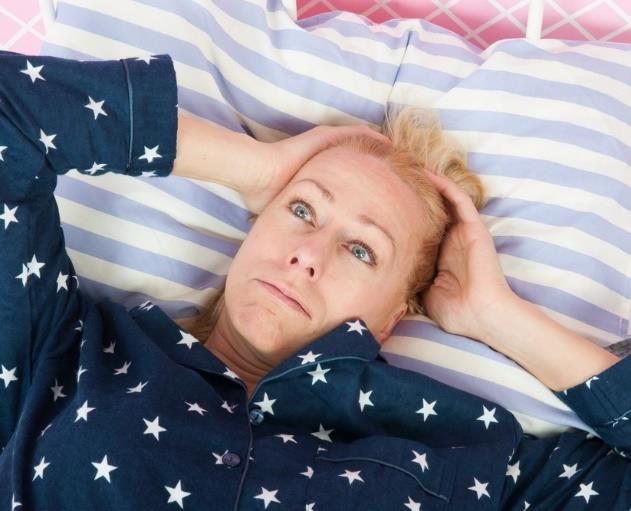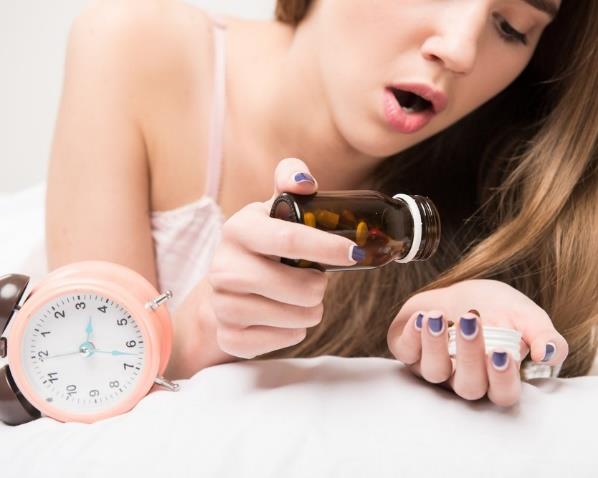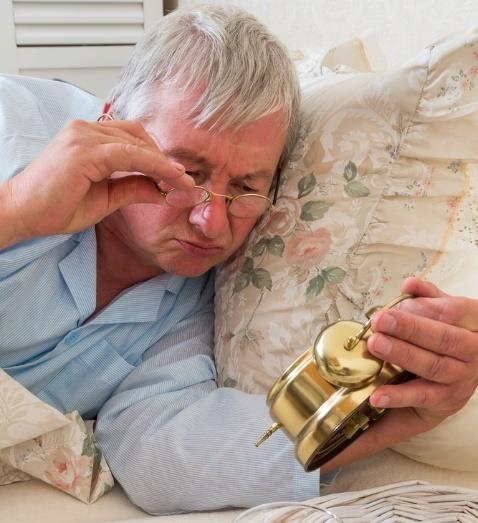My Sleep Struggles & the Risks of Sleep Deprivation for the Elderly
 I’m old. Older adults need about the same amount of sleep as people in their 20s,
but many elderly people get much less sleep than they need. Do you have trouble getting
enough sleep? Is it because you’re old, or have you always had issues with sleep deprivation?
Maybe being old has just added to the reasons you can’t sleep.
I’m old. Older adults need about the same amount of sleep as people in their 20s,
but many elderly people get much less sleep than they need. Do you have trouble getting
enough sleep? Is it because you’re old, or have you always had issues with sleep deprivation?
Maybe being old has just added to the reasons you can’t sleep.
Sleep Anxiety: I remember having sleep anxiety as early as age 10. My sister and I shared a bed in an unfinished basement with a crawlspace. Who knew what creatures were lurking in the dirt and the damp? I tried to ensure I would be asleep before my sister. I’m not sure why, because she was two years younger and not about to protect me from anything.
Light Sleeper: Even at age 12 and beyond, when we’d moved to the new home that replaced that dreadful rental, I had trouble going to sleep at night. Still sharing a bed with my sister, I blamed it on being a light sleeper who was disturbed by her. I was lulled to sleep more quickly when I had the radio on. (Now called “white noise.) When I moved to BYU’s Heritage halls, I had a bed to myself, but I shared a room with 3 girls who had more things on their minds than sleep and were annoyed by my radio. I felt sleep-deprived my whole freshman year.
Depression: My next recollection of what I would call abnormal sleep deprivation—e.g., not caused by the sleepless nights after the birth of our first two children—comes from a time not long after our little family moved to Massachusetts, and I was stuck at home with no car, no friends and the feeling that not doing anything for myself was what motherhood was about and what was supposed to make me happy. But I wasn’t happy! I went two weeks without sleeping at all, or so it seemed, before seeing a doctor.
 Reactions to Medication: I think it was around that time I first discovered that over-the-counter medications
like antihistamines, cough medicine, and other decongestants l that make most people
sleepy caused the opposite reaction in me. See the fine print on the box: “May cause
hyperactivity in small children.” I later discovered it was a genetic trait I passed
on to two of my children. No, Melatonin didn’t work either.
Reactions to Medication: I think it was around that time I first discovered that over-the-counter medications
like antihistamines, cough medicine, and other decongestants l that make most people
sleepy caused the opposite reaction in me. See the fine print on the box: “May cause
hyperactivity in small children.” I later discovered it was a genetic trait I passed
on to two of my children. No, Melatonin didn’t work either.
The Dr. gave me a sleeping pill to use “as needed,” but wondering if I would need to take a pill made me anxious, and when I did take one, it knocked me out for two or three hours, and then I was even more wide awake than before. That hyperactivity reaction! What finally helped was discovering how much happier and able to sleep I was when I had some time to myself.
Life Balance: Fortunately, my husband was empathetic, and we gradually moved in the direction of sharing the housework and child rearing duties. See his book, A Marriage of Equals, still available digitally from Deseret Book. Thanks to the feminist friends I made in Boston, I accepted the fact that I was one of those women who was a better, happier mother when I had something else I liked doing on the side. When our youngest turned one, I began working part-time and sleeping better more often.
Identifying the Cause: Giving in to my feminist leanings helped, but I continued to have frequent sleepless nights. I remember nights when I would be writing in my journal at 4:00 a.m. I continued to report my trouble sleeping at annual physicals and occasionally attempted taking other sleeping pills with the same effect. I finally found a doctor who realized he needed to try to alleviate the cause and not just give me something that knocked me out. What I have been taking for probably 25 years is a combination of an anti-anxiety pill and a muscle relaxant that allow me to sleep somewhat naturally.
Insomnia in the Elderly: Now I get to add being old and the related conditions to why, even medicated, I often don’t get enough sleep. Common causes of insomnia or trouble sleeping in the elderly can include health issues such as the pain from arthritis, some medications, and the need for frequent urination. Sleep apnea and restless legs syndrome are also more likely in seniors.
 Sleep Cycle: A cause of sleep deprivation we don’t often hear about is that as we age, our body’s
internal clock adjusts to earlier sleep and wakeup times. If seniors stay up late,
they are likely to wake up at their usual early hour, and thus have the side-effects
from a sleep-deprived day. I love going to the symphony and plays, but when I don’t
get home until 11:00 or 12:00, a “second wind” makes it difficult to go to sleep,
and I still wake up at 6:00 a.m.
Sleep Cycle: A cause of sleep deprivation we don’t often hear about is that as we age, our body’s
internal clock adjusts to earlier sleep and wakeup times. If seniors stay up late,
they are likely to wake up at their usual early hour, and thus have the side-effects
from a sleep-deprived day. I love going to the symphony and plays, but when I don’t
get home until 11:00 or 12:00, a “second wind” makes it difficult to go to sleep,
and I still wake up at 6:00 a.m.
While sleep requirements vary slightly for each person, most healthy adults require seven to nine hours of sleep nightly. Experts say how you feel in the morning is a better indication of what you need. Frequently waking up not feeling rested or feeling tired and wanting to sleep during the day are the best signs that you're not getting enough sleep.
Disturbed sleep and waking up tired are not part of normal aging. It’s important to get to the root cause of sleepless nights because not getting enough sleep carries with it several important health risks and concerns.
Sleep Deprivation can:
- Take a toll on nearly every part of your life, no matter how old or young you are.
- Be as dangerous for drivers as alcohol consumption, adding to the risks affecting a senior’s ability to be a safe driver.
- Make falls and other accidents more likely.
- Increase the risk of diabetes, obesity, heart disease, and other health issues.
- Cause depression, attention, and memory problems.
- Increase the risk of neurological disorders such as Alzheimer’s or Parkinson’s, and potentially speed their progression.
A long-term Harvard Medical School study followed 2,800 individuals aged 65 and older. Researchers found that individuals who slept under five hours per night were twice as likely to develop dementia compared to those who slept six to eight hours per night. Sleep problems are also common in people with dementia. They spend less time in the later stages of sleep and more time in the earlier stages. This can get worse as dementia progresses.
Sleep disorders can affect how much and how well you sleep. These can be caused by poor habits that keep you awake or medical problems that disrupt your sleep cycle.
- Poor habits such as: late evening caffeine or alcohol or eating, bringing phones or tablets to bed, not going to bed at the same time every night, staying up late, falling asleep with the TV on.
- Medical problems like: depression, anxiety, post-traumatic stress disorders, sleep apnea, medication side effects, chronic pain, thyroid problems.
If your attempts to resolve consistent sleep problems aren’t working, it’s time to get help. Make an appointment with a doctor and come with a list of the things you think might be making you unable to get enough rest. Hopefully, you’ll learn something that, at least, will give you more mornings when you wake up with the energy you need to get up early and get moving—which can also help you sleep better the next night.
